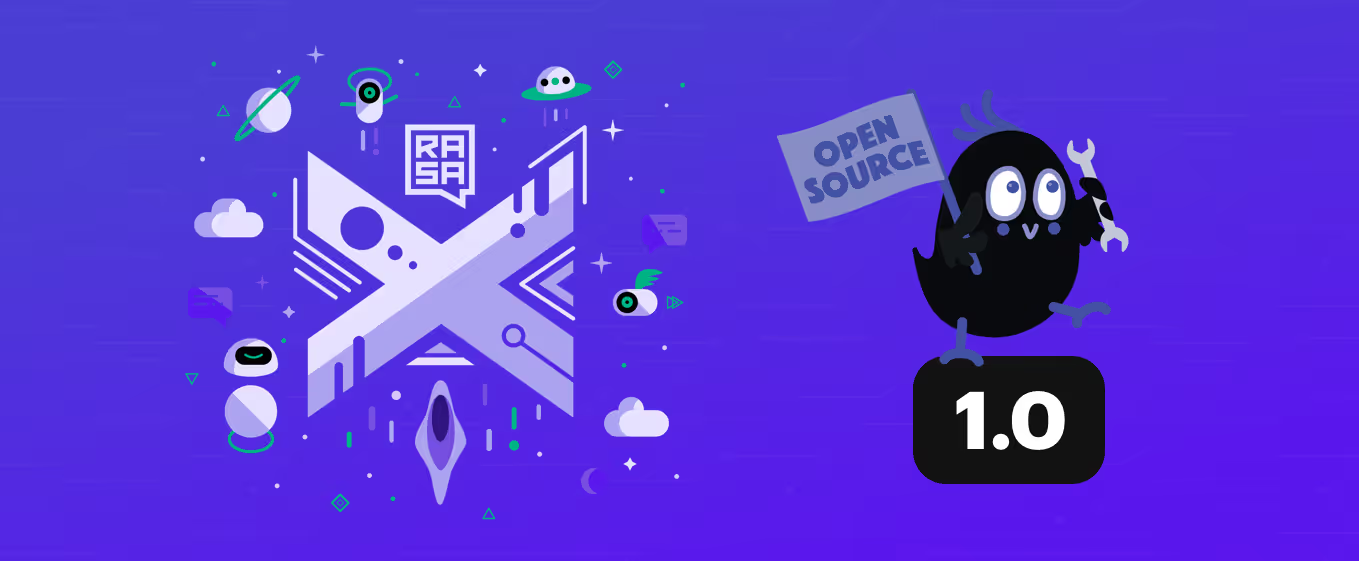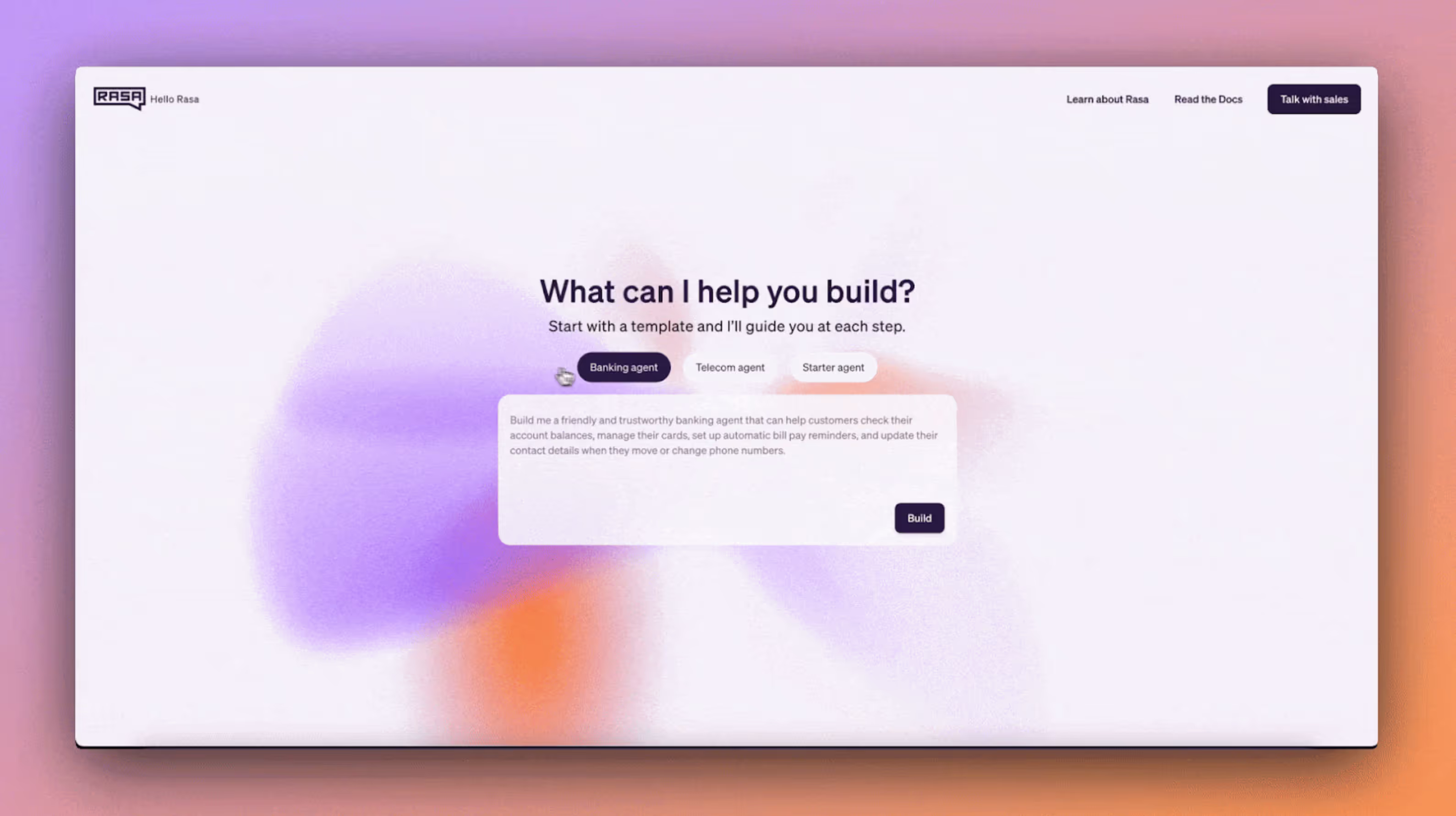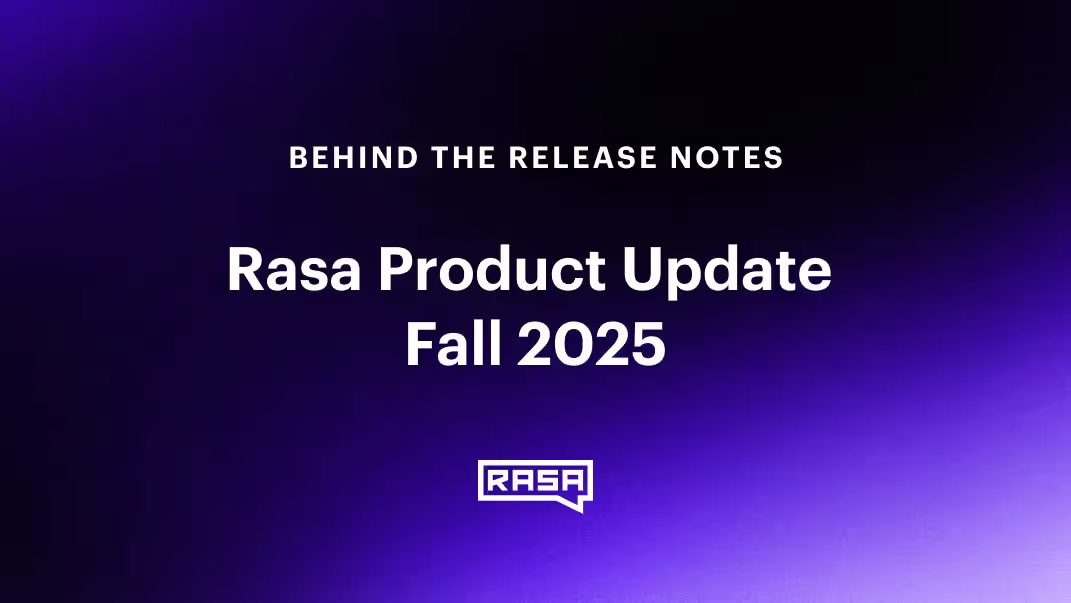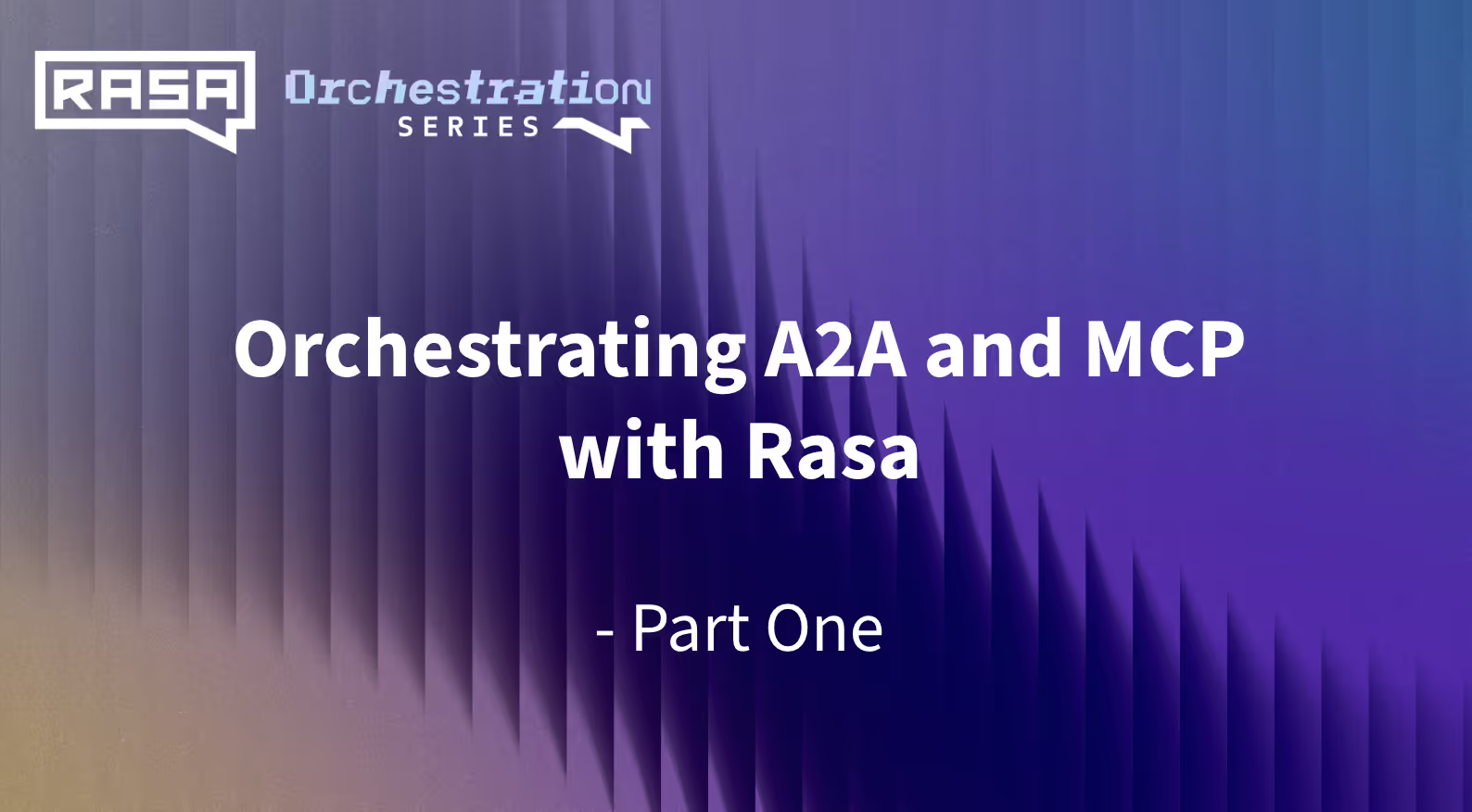Update: A lot of things have changed since this post was written. Rasa X, the freemium companion tool to Rasa Open Source, is no longer supported or maintained, and we are currently focused on the development of the Rasa Enterprise platform. To learn more about this, you can check out this blog post
TL;DR
- Our new product, Rasa X, helps developers learn from real conversations and improve the assistants they build with Rasa. It comes in Community ($0) and Enterprise (paid) editions. It's in early access and available today. Existing Rasa users go here, new ones here.
- Rasa NLU and Core (aka Rasa Stack) are now part of a single open source framework: Rasa, and version 1.0 is available today. You can still use NLU and Core independently, they are just part of the same package now.
- Conversational AI is far from being solved - we'll continue to invest in ML research and better tools
AI assistants that work for everyone
At Rasa, we're building the standard infrastructure for conversational AI so that all developers can create the best text- and voice-based assistants.
In 2016 we wrote that we don't know how to build conversational software yet. Since then, we've been doing research and shipping code, tackling the machine learning side of the problem. Rasa NLU and Core were our first major moves towards better conversational AI. The ability to customise an open source framework, as opposed to starting from scratch or working with a black-box SaaS API, has enabled thousands of developers to create assistants that wouldn't have been possible otherwise, from startups to the Fortune 500.
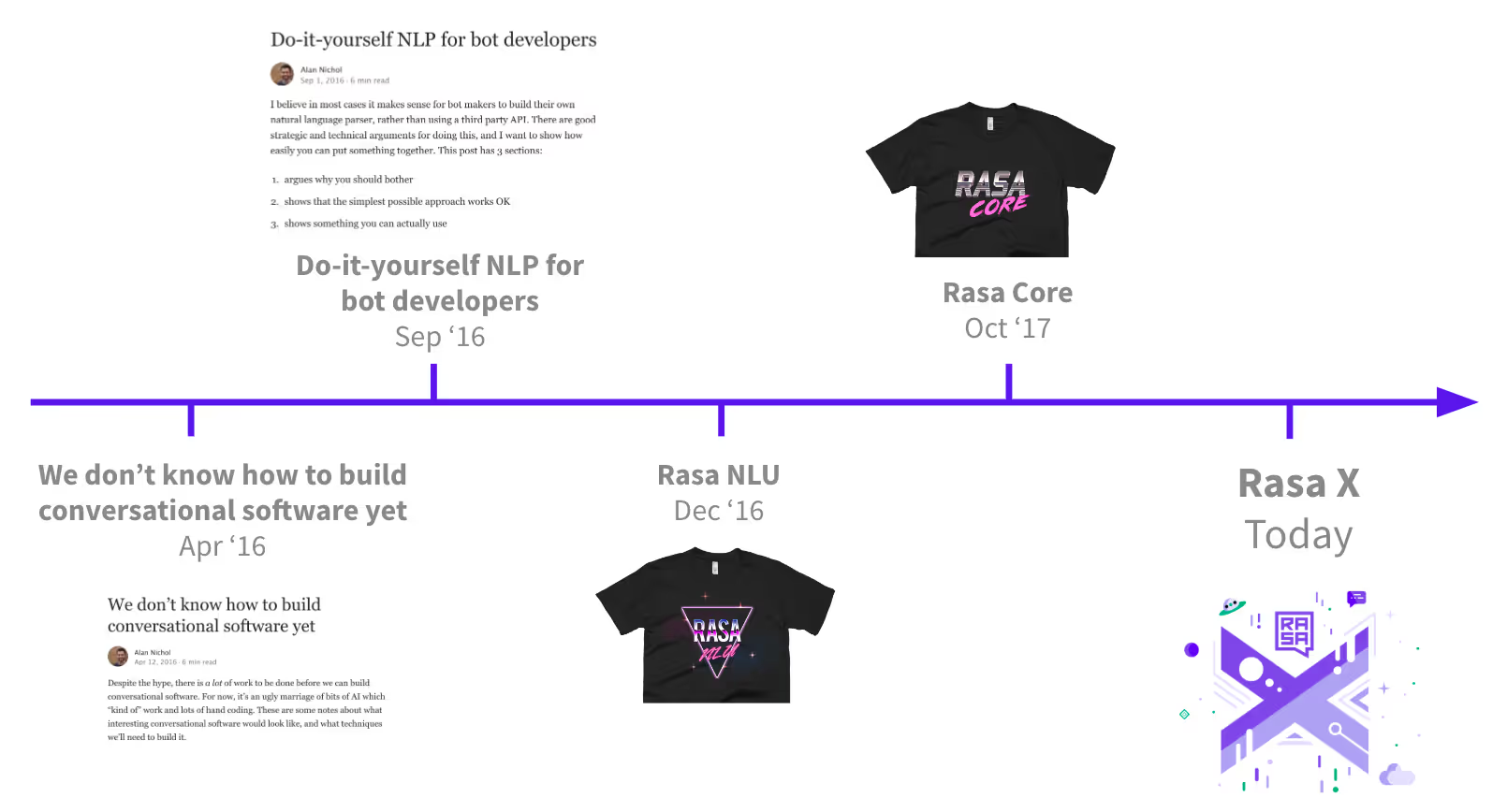
Why better algorithms alone won't solve conversational AI
NLP is moving incredibly fast (GLUE is out and SuperGLUE is in), models like BERT and GPT-2 show that language model pre-training can give us much better representations, and we're working hard at making those gains available without requiring everyone to get a TPU. In fact, we're doubling down on research and hiring someone to lead those efforts.
But one thing that's become obvious by talking to our community is that algorithms alone aren't enough: you also need powerful tools for collecting and annotating training data. It's a cliche by now, but the three things you need for machine learning are algorithms, computer power, and data. For conversational AI, real conversations with your assistant are by far the most valuable source of data.
First piece of news: early access to Rasa X - a brand new product for developers
With Rasa X, we're giving all developers tools for viewing and filtering conversations between humans and their Rasa assistant, for turning those conversations into training data, for managing and versioning models, and for easily giving test users access to their assistants.
These are just the first workflows we implemented over the past six months. There is much more we want to build to make Rasa X even better, but we wanted to open it up for early access now and get input from the community to help steer it in the right direction.
What Rasa X is
- Rasa X is a tool for learning from real conversations and improving your assistant.
- Rasa X is totally optional. If you don't want to, you can use the open source framework on its own.
What Rasa X is not
- Rasa X is not a hosted service.
- Rasa X is not an all-in-one, point-and-click bot platform. Some things, like inspecting and annotating conversations, are much easier in a UI. Rasa X focuses on those use cases and not on replacing things that are easier to do in code.
Again, it's not a hosted service. You run Rasa X yourself, on your own computer, when you're developing, and deploy it to a server for your production instance. That means you stay in control of your training data, models, and conversations. See how to get started with your existing Rasa assistant.
Rasa X comes in Community ($0) and Enterprise (paid) editions. We've made the community edition free of charge, but haven't open sourced it. We're doubling-down on our open source framework.
Second piece of news: Rasa goes 1.0
We've merged Rasa NLU and Core (aka Rasa Stack) into a single open source framework: Rasa. We did this to reduce code duplication and improve usability, but you can still use core and NLU independently!
We've shipped some cool features in the last couple of years, from supervised word vectors and multi-intents to a dialogue policy which learns repeatable patterns across domains. But with all those innovations, the basic concepts have remained stable. That's why we're releasing a 1.0 version of Rasa.
Rasa has a new and vastly simplified CLI. We think everyone will be happier and more productive running short commands like `rasa train` and `rasa run`.
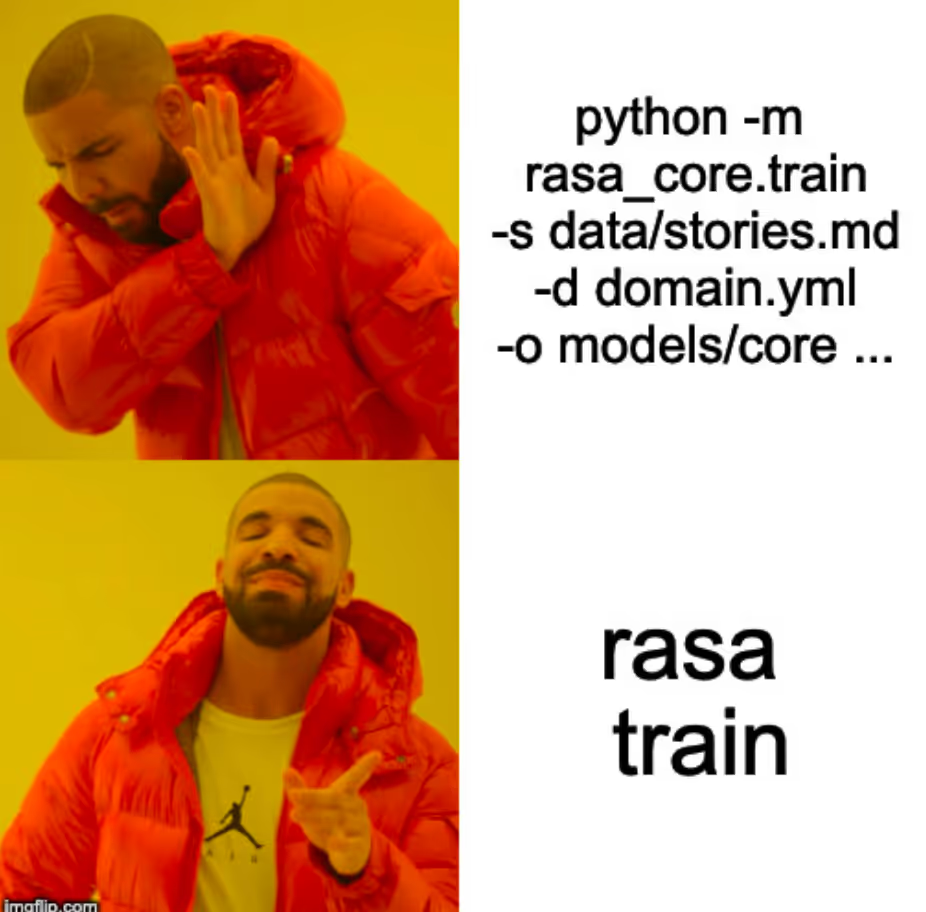
Install Rasa X and let us know what you think
Enough talking: Rasa X is in early access and can only get better out in the wild.
We're curious to hear what you think!
🎙 Here is a link to the recording of our announcement livestream.
